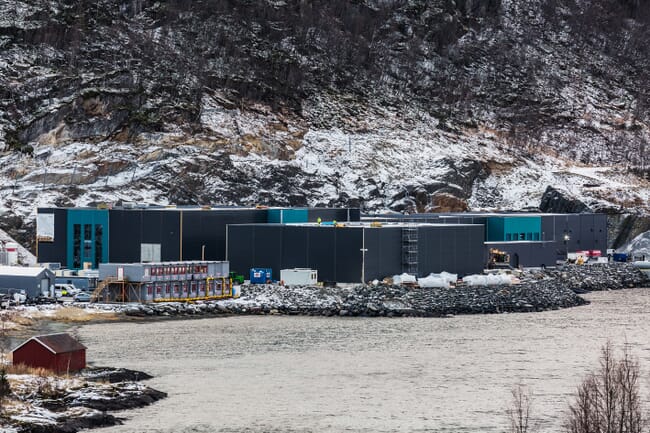Areas of study will include land-based and ocean-based closed-containment systems, as well as offshore aquaculture production systems.
“British Columbians and all Canadians want us to ensure the environmental sustainability of aquaculture operations while concurrently taking full advantage of the economic opportunity that is available. This technology study will identify the newest global developments in aquaculture technologies - which can potentially enable improved environmental and economic performance. Our government is firmly committed to making aquaculture both economically successful and environmentally sustainable,” said Canada’s Minister of Fisheries, Oceans and the Canadian Coast Guard, Jonathan Wilkinson, who launched the study on 6 March.

© SalmoBreed
It is expected that the study will include:
- A brief overview and economic analysis of existing and emerging technologies, including their state of commercialization.
- An analysis of the environmental impacts of these technologies.
- An analysis of how sensor technologies and data could further address potential environmental impacts.
- An analysis of the social implications, including job creation and impacts on coastal/rural communities.
- A financial assessment of commercially available technologies, including an analysis of the main factors influencing their financial performance.
- An analysis of trade-offs between environmental, economic and social impacts of the technologies reviewed.
- Recommendations to address potential obstacles to adoption of each of the technologies reviewed.
The project is being run in partnership with the Province of British Columbia and Sustainable Development Technologies Canada (SDTC). The purpose of the study is to provide viable technology options for salmon farming in British Columbia, with a particular focus on technologies that reduce interactions between aquaculture and the environment, and any potential impacts on wild salmon. Areas of study will include land-based and ocean-based closed-containment, as well as offshore aquaculture production systems.
“Sustainable aquaculture operations support food security and jobs in coastal communities and finding the right technology to do that will help the sector and employment opportunities in it grow. This study is part of the BC government’s ongoing commitment to protect wild salmon, and develop sustainable aquaculture operations that have the support of industry, indigenous and local governments on the coast, and British Columbians all over the province. We’ve had success working together, and we’re committed to working for more,” said BC’s Minister of Agriculture, Lana Popham
The study is being conducted by Gardner-Pinfold Consulting, who will work in close collaboration with an appointed Advisory Committee. The Advisory Committee, which will provide overall guidance for the work, includes representatives from the BC First Nations Fisheries Council, Tides Canada, the BC Salmon Farmers Association, SDTC, the Province of BC and DFO.
Results from the study are expected to be released to the public during the summer of 2019.



